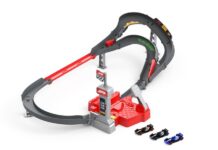Long weekends provide the perfect opportunity to take that well-earned break away with family and friends. Driving on South African roads can involve some very long distances, which means long hours behind the wheel, something the average driver is not accustomed to.
“I’m passionate about road safety,” says Pertunia Sibanyoni CEO of InspectaCar. “With the Easter long weekend upon us, we have prepared a few tips which could help make your getaway as rewarding and safe as possible.”
Curb Fatigue
Lengthy driving stints mean the risk of fatigue is very real, and drowsiness is one of the biggest hazards on our roads. Fatigue significantly reduces a driver’s ability to safely handle a motor vehicle and can sneak up on a driver very quickly resulting in diminished reaction times and alertness. Fatigue is a very serious problem and no one should consider themselves immune.
Preparation
Like everything else in driving, a successful long journey starts with planning. Know your route well, so you aren’t stressed by navigating or the need to make up time. Don’t commit to specific arrival times and ensure that you prepare your vehicle well ahead of time. Make certain that you have the necessary tyre-changing equipment such as wheel spanners and jack. If your vehicle requires a key to unlock the wheel nuts, make sure that you have it with you before you leave.
Always check the tyre pressure of your vehicle. Remember that vehicles under heavy loads usually require higher pressures. For the guidelines relating to your car’s particular tyre information, consult the owner’s manual or the sticker often found on the B-pillar inside the driver’s door.
Plan several stop-points along the way and most importantly, get a good night’s sleep before departure.
Techniques
Ensure that you adopt the correct driving posture and wear comfortable clothing and suitable shoes for driving. High heels and flip flops were not designed to operate a car’s pedals. Don’t forget sunglasses to protect your eyes.
Drive smoothly and steadily, and don’t stress about having to reduce speed for a couple of kilometres behind a slower vehicle.
Drink plenty of water, never alcohol and take snacks. We suggest fruit and vegetables, but nothing sugary or fatty.
Make regular rest stops, and listen to your body. If you’re feeling tired at the wheel it’s definitely time to have a break. When you do stop, make sure to use the time properly; get out of the car, go for a walk and stretch. Consider parking the car some distance from whatever facility you’ve stopped at, just to ensure a decent walk. When stopping for a meal, try to eat light meals as a heavy meal could lead to drowsiness behind the wheel.
Adjust your driving to suit the road and weather conditions. If the roads are wet, increase your following distance, as roads may be slippery with reduced braking efficiency. Turn on your headlights (if not on already) and avoid puddles which may conceal potholes.
Do not overload your vehicle. It’s dangerous to load your car to the point where you can’t see through the rear window clearly. Overloading can also affect your vehicle’s ability to steer, stop and change direction. It can also lead to premature brake and tyre wear, and increase fuel consumption. So, think twice before you pack all those just-in-case items that probably aren’t necessary.
Article provided by InspectaCar




























